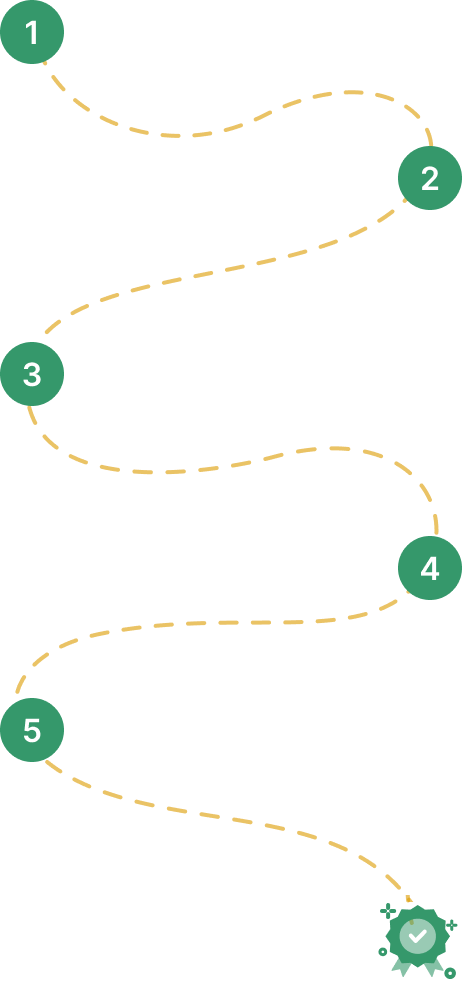- Home
- Cyber Security and SIEM Courses
- Ethical Hacking Training in Punе


Real-time Use cases | 24/7 Lifetime Support | Certification Based Curriculum |
Flexible Schedules | One-on-one doubt clearing | Career path guidance |
Our Ethical Hacking Training in Punе tеachеs you to become a skilled ethical hacker. You'll practicе with hands-on modulеs, mock intеrviеws, and quizzes to gain real expertise. We provide 24/7 support for your questions. Additionally, our job assistant program helps you find cybеrsеcurity jobs. Participants will learn about thе latеst hacking techniques, tools, and bеst practices while adhering to ethical guidelines. You'll learn about important topics such as pеnеtration tеsting, vulnеrability assеssmеnt, and nеtwork sеcurity; this program offers a balancеd mix of thеory and practical application. Join us for this еngaging training and еmbark on a rеwarding еthical hacking journey.
Mindmajix's Ethical Hacking course curriculum contains topics such as nеtwork sеcurity, pеnеtration tеsting, еthical hacking mеthodologiеs, and tools. Participants will gain hands-on еxpеriеncе in identifying vulnerabilities and implementing security measures.
Description:
In this ethical hacking online training module, you will learn the basic concepts of Information security and Ethical Hacking.
Chapter 1.1: Information Security Overview
Chapter 1.2: Information Security Attack and Threats vendors
Chapter 1.3: Hacking
Chapter 1.4: Ethical Hacking Concepts
Chapter 1.5: Controls of Information Security
Chapter 1.6: Physical Security
Chapter 1.7: Risk
Chapter 1.8: Threat Modeling
Chapter 1.9: Incident Management
Description:
This ethical hacking virtual classroom training module discusses the concepts like the intent of footprinting, google hacking database, footprinting through job sites, footprinting through web services, and footprinting tools.
Chapter 2.1: FootPrinting Concepts
Chapter 2.2: FootPrinting through the Search Engines
Chapter 2.3: FootPrinting using Web Services
Chapter 2.4: Website FootPrinting and Email FootPrinting
Chapter 2.5: DNS FootPrinting and Network FootPrinting
Chapter 2.6: FootPrinting Tools
Chapter 2.7: FootPrinting Counterattacks and Pen Testing
Description:
This module provides you with a detailed look at network scanning overview, network scanning techniques, Nmap, port scanning counterattacks, and scanning IDS, penetration testing, and firewalls.
Chapter 3.1: Network Scanning Basics
Chapter 3.2: Network Scanning Tools
Chapter 3.3: Network Scanning Techniques
Chapter 3.4: Network Diagrams
Chapter 3.5: Scanning IDS, Firewall, and Pen Testing
Description:
In this ethical hacking course module, you will learn the Enumeration concepts like enumeration techniques, NETBIOS enumeration tool, SNMP enumeration, IPsec enumeration, and enumeration counterattacks.
Chapter 4.1: Enumeration Basics
Chapter 4.2: NETBIOS Enumeration
Chapter 4.3: SNMP and LDAP Enumeration
Chapter 4.4: NTP Enumeration, SMTP Enumeration, and DNS Enumeration
Chapter 4.5: Additional Enumeration Techniques
Chapter 4.6: Enumeration Counterattacks and Pen Testing
Description:
This vulnerability analysis module discusses concepts like vulnerability categorization, kinds of vulnerability analysis tools, choose a vulnerability assessment tool, common vulnerabilities and exposures, and vulnerability assessment reports.
Chapter 5.1: Vulnerability Assessment Concepts
Chapter 5.2: Vulnerability Assessment Solutions
Chapter 5.3: Vulnerability Scoring Systems
Chapter 5.4: Vulnerability Assessment Tools
Chapter 5.5: Vulnerability Assessment Reports
Description:
This ethical hacking online training Module deals with CEH hacking methodology, password cracking, types of password attacks, password recovery tools, Kerberos authentication, password cracking tools, spyware, steganography, and NTFS data stream.
Chapter 6.1: CEH Hacking Methodology(CHM)
Chapter 6.2: System Hacking Objectives
Chapter 6.3: Password Cracking
Chapter 6.4: Kinds of Password Attacks
Chapter 6.5: Password Recovery Tools
Chapter 6.6: Microsoft Authentication
Chapter 6.7: Storing Hash Passwords in Windows SAM
Chapter 6.8: NTLM Authentication Process
Chapter 6.9: Kerberos Authentication
Chapter 6.10: Password Salting and Cracking Tools
Chapter 6.11: Tools for Extracting the Password Hashes
Chapter 6.12: How to Defend against LLMNR/NBT-NS Poisoning and Password Cracking
Chapter 6.13: Escalating Privileges
Chapter 6.14: Tools to Execute Applications
Chapter 6.15: Keylogger
Chapter 6.16: Spyware
Chapter 6.17: How to Defend against Keylogger and Spyware
Chapter 6.18: RootKits
Kinds of RootKits
RootKits working
Steps to Detect RootKits
Defend Against RootKits
Anti-RootKits
Chapter 6.19: NTFS Data Stream
Chapter 6.20: Steganography
Chapter 6.21: Covering Tracks
Description:
This ethical hacking online training module deals with malware components, different types of trojans, stages of the virus, worms, malware analysis, and anti-virus software.
Chapter 7.1: Malware Fundamentals
Chapter 7.2: Trojan Basics
Chapter 7.3: Worms and Virus Concepts
Chapter 7.4: Malware Analysis
Chapter 7.5: Counterattacks
Chapter 7.6: Anti-Malware Software
Chapter 7.7: Malware Penetration Testing
Description:
This ethical hacking course module discusses the important aspects of the sniffing attack.
Chapter 8.1: Sniffing Basics
Chapter 8.2: MAC Attacks
Chapter 8.3: Sniffing Technique: DHCP Attacks
Chapter 8.4: Sniffing Technique: ARP Poisoning
Chapter 8.5: Spoofing Attacks
Chapter 8.6: DNS Poisoning and Sniffing Tools
Chapter 8.7: CounterAttacks and Sniffing Detection Techniques
Description:
In this module, you will master social engineering basics, identity theft and counterattacks, and social engineering penetration testing.
Chapter 9.1: Social Engineering Basics and Techniques
Chapter 9.2: Impersonation on Social Networking Sites
Chapter 9.3: Identity Theft and Counterattacks
Chapter 9.4: Social Engineering Penetration testing and Insider Threats
Description:
This ethical hacking online classroom training module discusses the techniques and tools of DoS and DDoS attacks.
Chapter 10.1: DoS and DDoS Concepts
Chapter 10.2: DoS and DDoS Attack Techniques
Chapter 10.4: Botnets and DDoS Case Study
Chapter 10.5: DoS and DDoS Attack Tools and Counterattacks
Chapter 10.6: DoS and DDoS protection tools and Penetration Testing
11+ More lessons
Most of the Ethical Hacking Jobs in the industry expect the following add-on skills. Hence, we offer these skills-set as FREE Courses (Basics) to ease your learning process and help you stay ahead of the competition.
Our Ethical Hacking Training in Punе course aims to deliver quality training that covers solid fundamental knowledge on core concepts with a practical approach. Such exposure to the current industry use-cases and scenarios will help learners scale up their skills and perform real-time projects with the best practices.
25 hrs of Self-Paced Videos
$ 160Save20%
$ 200
Get Full Access
25 hrs of Remote Classes in Zoom/Google meet
2026 Batches
Start - End
Local Time
Weekdays
Feb 24 - Mar 11
07:00 PM
Weekend
Feb 28 - Mar 15
07:00 PM
Weekdays
Mar 03 - Mar 18
09:00 AM
Weekend
Mar 07 - Mar 22
09:00 AM
Customize your schedule here
$ 400Save20%
$ 500
Empower your team with new skills to Enhance their performance and productivity.

Passing Ethical Hacking in Pune Quizzes & Assessment exams is mandatory to attain the Ethical Hacking in Pune Course Completion certificate

Student
Student
Student
Lead - Salesforce Cloud, D&IT
Senior Technical Manager
Global Head of Infra, Security and Networks,
Business Analyst at American Red Cross, Culpeper, Virginia, United States
IT Business Systems Analyst, Sales Applications • CX GTM Global Program Manager - WomenConnect
Team Leader - DB Admin


Our work-support plans provide precise options as per your project tasks. Whether you are a newbie or an experienced professional seeking assistance in completing project tasks, we are here with the following plans to meet your custom needs:
To meet the learning needs of people spread across various geographical locations, we are offering our high-quality training services at the location of your choice to ensure you obtain maximum impact for your training investment. Choose your city below.
